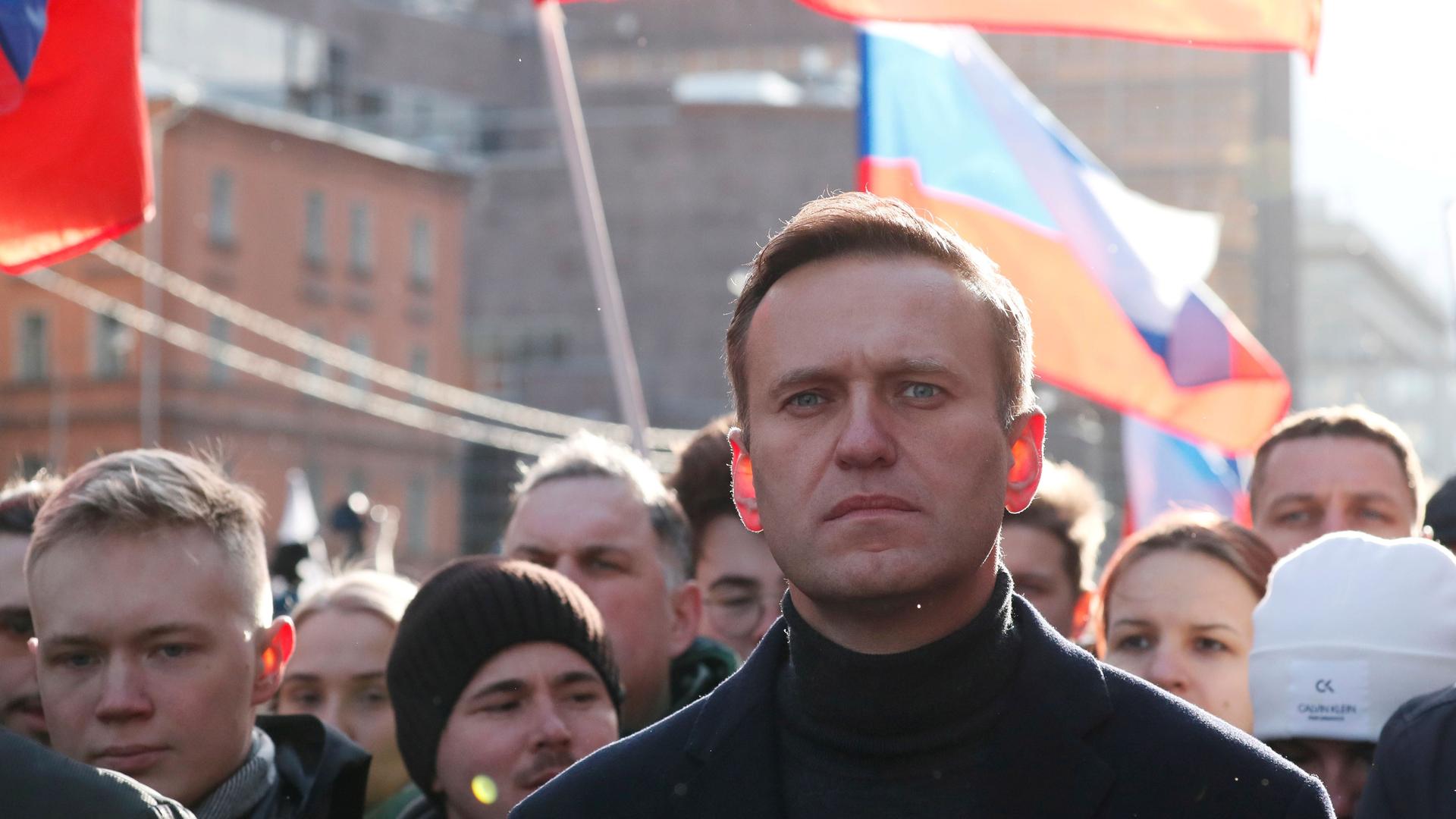Who else but Navalny? Kremlin critic’s illness a blow for campaign to break Putin’s grip.
Kremlin critic Alexei Navalny’s sudden illness has upended his strategy to challenge Vladimir Putin’s grip on power at upcoming regional elections. But it also exposes a longer-term issue — the leadership vacuum within Russia’s opposition.
Navalny, 44, now lying in a Berlin hospital after a suspected poisoning, had been urging supporters to vote tactically for candidates running against the ruling United Russia party in mid-September.
Russians will elect 18 governors, as well as local parliaments and city councilors in countrywide voting which is effectively a dry run for parliamentary elections in September 2021.
Though Putin — in his fourth term of office — looks unassailable as Russian leader, the elections take place amid frustration over years of falling wages and a coronavirus lockdown that pushed his approval rating to two-decade lows.
Before Navalny fell ill on Aug. 20 on a flight from Siberia to Moscow, he had cast his campaign as a long-term strategy to short-circuit a political system which often bars his allies from contesting elections, while allowing less outspoken opponents from other parties to run.
Political analyst Abbas Gallyamov, a former Kremlin speechwriter, questioned whether anyone else had the political weight to take the helm of the campaign.
“To force voters to vote en masse, you need someone extremely authoritative,” he said.
Under Navalny’s smart voting plan, supporters receive emails on the eve of regional or local elections telling them to vote for a specific candidate running against United Russia.
The strategy spooked United Russia in 2019, when it lost a third of its seats in Moscow city elections..
But while the campaign largely failed outside Moscow, it has won momentum of late from mass anti-Kremlin protests in the Far East, triggered by the arrest of a governor who had scored a rare election win against United Russia in 2018.
Navalny’s team will press ahead with the strategic voting campaign, his ally Leonid Volkov said.
“Clearly it is extremely unpleasant for us that Navalny has temporarily been taken out of action,” he told Reuters, vowing to do everything possible “to compensate for his temporary absence so that smart voting wins”.
German doctors say Navalny may have been poisoned with a cholinesterase inhibitor, a substance also used in nerve toxins such as one used in the 2018 poisoning of an ex-Russian spy in England.
The Kremlin says the poisoning diagnosis is inconclusive.
Who’s the leader?
So who within the fragmented opposition could step up if Navalny is incapacitated for months, or even permanently?
Rising to prominence during the demonstrations of 2011, Navalny is the undisputed leader of the opposition outside official structures.
His YouTube videos detailing corruption allegations against officials reach millions of Russians, making him a thorn in the side of the Kremlin.
“Of course what happened was aimed at decapitating the opposition,” Andrei Kolesnikov, an analyst at the Moscow Carnegie Center think-tank.
But a source close to the Kremlin said smart voting had annoyed the government but was not really a huge threat. The opposition faced a bigger problem, the person said, adding:
“He is bright, young, handsome, famous, has found his own style…when will the same appear? Not soon.”
But Volkov said the voting strategy was not tied to Navalny the person. Aside from Volkov, another Navalny ally is Lyubov Sobol, a 32-year old lawyer who was prominent in last year’s protests in Moscow. Other allies include activists Ivan Zhdanov and Georgy Alburov.
Sobol declined to be interviewed for this article.
Leading Russia’s opposition is an unappealing proposition.
Navalny has been targeted multiple times by pro-Kremlin activists, being attacked in 2016 during a trip to southern Russia and twice in 2017 when a green dye thrown at him, temporarily lost him the vision in one eye.
The 2014 jailing of his brother for fraud was also seen by many as politically motivated.
“This challenges the opposition to seek a new leader. But some new one will appear. A sacred place never stays empty for long,” the Kremlin-linked source said.
Our coverage reaches millions each week, but only a small fraction of listeners contribute to sustain our program. We still need 224 more people to donate $100 or $10/monthly to unlock our $67,000 match. Will you help us get there today?
